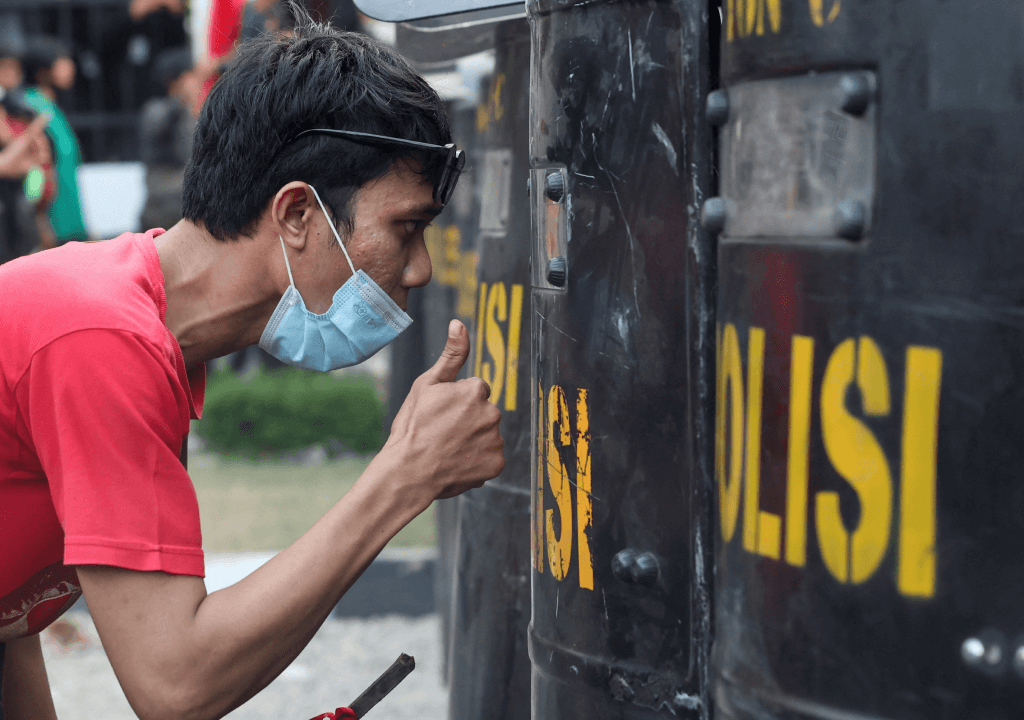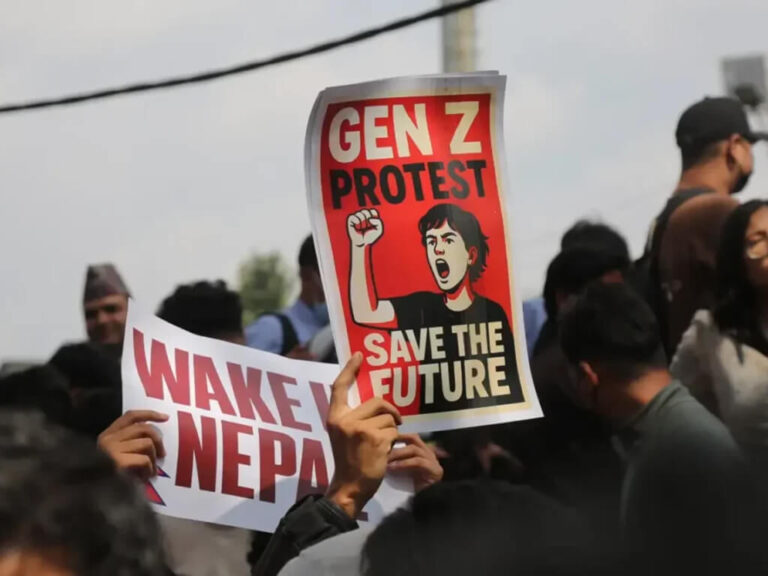Indonesia, a country with a long history of dynastic politics, saw massive protests outside the parliament building as citizens rallied to defend democracy from the influence of powerful political families. In response to these widespread demonstrations, Indonesian legislators were compelled to abandon their plans to ratify revisions to election laws. With thousands of protesters gathered outside, lawmakers postponed an emergency session. The demonstrators set tires on fire, ignited firecrackers, and chanted slogans against President Joko Widodo, also known as Jokowi. The unrest soon spread to other cities as well.
On Thursday, the Indonesian Parliament was poised to overturn a Constitutional Court order regarding age requirements for candidates in the upcoming regional elections. This reversal would counter a ruling that had disqualified President Joko Widodo’s 29-year-old son, Kaesang Pangarep, from running. The Constitutional Court had recently dismissed a challenge to the age limit, which prevents those under 30 from running for regional governorships and would have barred Kaesang from participating in a key contest in Central Java. If implemented, the proposed changes could further amplify the outgoing president’s political influence, drawing criticism that the move aims to establish a political dynasty. The incoming president, Prabowo Subianto, who is set to take office in October, also hails from a prominent political dynasty, leading to concerns and protests over the concentration of power between these two dynasties. In response to the escalating unrest following news of the new law that could overturn the court’s verdict, Widodo’s office has sought to ease tensions.
This development is seen as a setback for Joko Widodo’s efforts to place his son and several relatives in key positions of power. Last year, a similar ruling allowed his eldest son, Gibran Rakabuming Raka, 36, to become Indonesia’s youngest vice president, which sparked allegations of nepotism. At that time, the court was headed by Widodo’s brother-in-law, Anwar Usman. Now, Widodo’s younger son, Kaesang Pangarep, is expected to seek a prominent role in November’s regional elections. To bypass the minimum age requirement of 30 for candidates, the president’s allies had proposed applying the age criterion at the time of inauguration, as Kaesang will turn 30 in December. However, this strategy has been blocked, thwarting Widodo’s plans. Additionally, Widodo faces criticism for allegedly supporting his successor, defense chief Prabowo Subianto, who is set to assume office in October, to maintain his family’s political influence. Furthermore, Joko’s son-in-law, Bobby Nasution, is running for governor of North Sumatra after his tenure as mayor of Medan. Experts observe that Indonesians are growing disillusioned with Widodo and his efforts to retain political influence as he prepares to step down after two five-year terms as president.
People are deeply frustrated with the frequent and rapid manipulation of democratic system, driven by a clear desire to extend power. Protests have erupted in Yogyakarta, Makassar, Bandung, and Semarang, reflecting the so-called Generation Z revolution in Bangladesh. The government may act quickly on this issue, recognizing the parallels between the situations in Bangladesh and Indonesia, both of which grapple with political Islam. The Indonesian government is unlikely to retreat from its efforts to consolidate control and bolster its influence through political dynasties, and is expected to continue reinforcing its grip on power.








